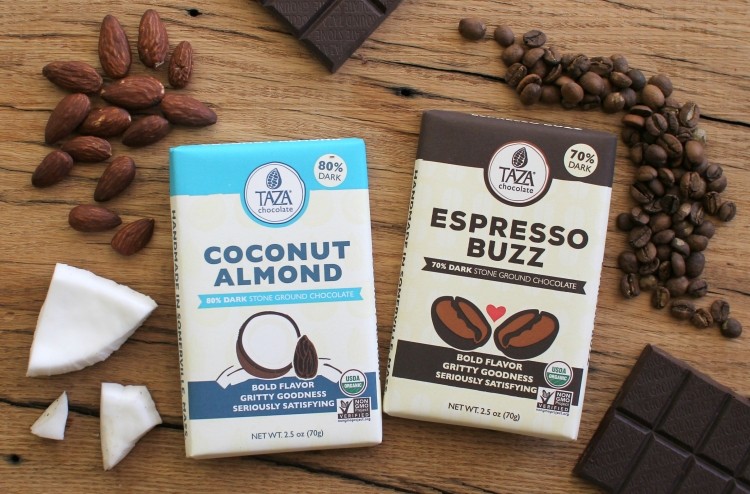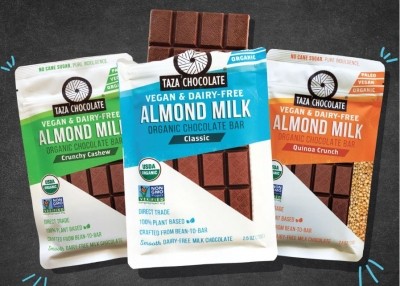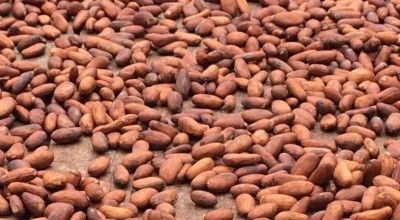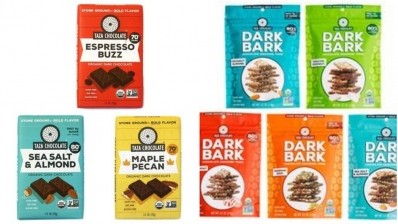Taza reduces dark chocolate bitterness through stone grinding process

CEO Alex Whitmore took his first bite of stone ground chocolate while traveling in Oaxaca, Mexico, and was taken back by the “rustic intensity” of the flavor.
Before starting his own business, Whitmore apprenticed under a miller in Oaxaca to learn how to hand carve granite mill stones so he could make a new kind of American chocolate.
Bringing out cacao’s fruit flavor without sweeteners
“Stone ground chocolate is much less processed than traditional European-style smooth chocolate,” Whitmore told ConfectioneryNews. “We grind our cacao using Mexican stone mills, which have hand-carved granite millstone inside.”
“This creates an incredibly bold-flavored chocolate and captures the fruity notes of cacao, which is, of course, a fruit,” he said. “This allows us to make very dark chocolate that still tastes bright and fruity, rather than harsh or bitter.”
Taza CEO's tips for chocolate startups
"Know your customer and make sure your products serve their needs very well, and those attributes are clearly communicated on the package. Stay true to your beliefs and make sure they shine through in the way you do business. Customers notice company ethos and values more than they ever have before."
“Stone grinding also retains a rustic, satisfying grittiness in the finished chocolate. We like to say that we keep the bean in the bar.”
While an increasing number of chocolate firms have started using natural sweeteners to replace sugar, Whitmore said stone ground chocolate is still a new concept to many consumers, who expect all chocolate to be “waxy smooth.”
“But that challenge is also our greatest strength,” he added. “There can be a surprise factor when they first try it.”
Developing new trendy products
Taza created its first Amaze Bar line in 2014, and it quickly became its top-selling brand. Now the company has extended the range as it posted a strong year-over-year growth rate of 20%.
The two new products which will be unveiled at the upcoming Expo West in Anaheim, California, include 80% dark coconut almond, and 70% dark espresso buzz. Each of the 2.5-ounce bars retails for $3.99.
“One of biggest shifts we see is consumers embracing much darker chocolate,” Whitmore said. “While a few years ago, 70% was considered a very dark chocolate, now we are seeing the top selling bars across all channels being 80% dark or higher. Consumers are demanding healthier, lower sugar treats.”
“Dark chocolate is a natural source of energy-boosting theobromine, and Taza gives it an extra lift with whole roasted espresso beans,” he said.
A recent report from Market Research Future projected global sugar-free chocolate sales will grow more than 2.83% by 2022 driven by increasing health awareness among consumers. Some of the key sugar-free players in the next few years will include Godiva and Hershey.
Whitmore added consumers are also embracing “snackable” chocolate formats in stand-up bags, and Taza is currently developing new items to follow that trend.
“We’re focused on expanding our distribution in 2017, both in natural and beyond into more conventional outlets where shoppers want to be able to get the natural products that are key to their healthy lifestyle,” he said.





















